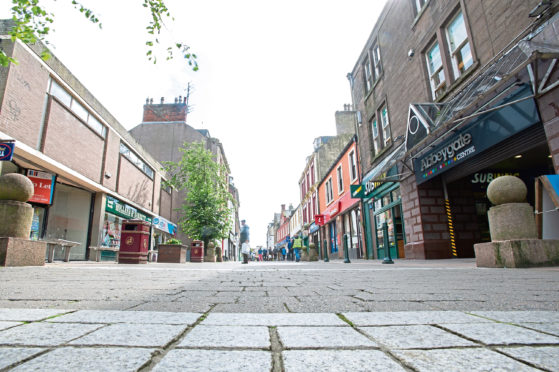Non-food sales fell by more than 71% year-on-year according to new figures published today as the impact of the Covid-19 lockdown engulfed Scotland’s high streets.
Total sales in Scotland slumped by 40.3% compared with April 2019, according to the Scottish Retail Consortium (SRC), the worst recorded level since the SRC’s monthly retail monitor began in 1999.
The organisation has warned that collapse in retail sales will be felt “well beyond the easing of restrictions”.
Discretionary spending bore the brunt of the impact as consumers focussed on essential purchases, while grocery sales also fell as households depleted stockpiled food.
David Lonsdale, director of the Scottish Retail Consortium, said the first full month of lockdown had seen retail sales in Scotland collapse.
He said: “The spike in online purchases failed to staunch much of the drop and the decline affected all parts of retail.
“The few bright spots included sales of items which allowed people to work or school from home, especially computers and accessories.
“DIY, toys and games, and personal hygiene items, such as anti-bacterial gel, performed well.”
Mr Lonsdale added that retailers are “working hard to ready themselves to re-open safely” but called for greater clarity on Scotland’s route out of lockdown and a “sense of the likely sequencing and timeframes of any phased re-opening of shops.”
Meanwhile, a survey by Scottish Chambers of Commerce (SCC) backed the view that businesses were preparing to re-open once restrictions had eased, with more than half of respondents saying they would need a week or less to get back up and running under a partial or complete end of the lockdown.
More than a third said they would need between one to three weeks, while 20% said they would not require any time at all.
However, one in five businesses said they face imminent collapse in the next two months.
A further 43% of businesses surveyed said they fear they will not survive if lockdown continues.
The SCC called for sector specific guidance on how to return to work “in a way that is safe for employees, customers and the wider population”.
Chief executive Liz Cameron, said: “Scottish businesses are bruised and it is still the case some are likely to fail.
“But those that are ready and able to get back to work are showing some signs of confidence they could make it through.”
Ms Cameron also welcomed the extension to the furlough scheme, but expressed concern that, for rural businesses in particular, the extension may not be enough.
She added: “There’s still the risk the scheme will run out before businesses have enough income to pay staff.”
jimillar@thecourier.co.uk
